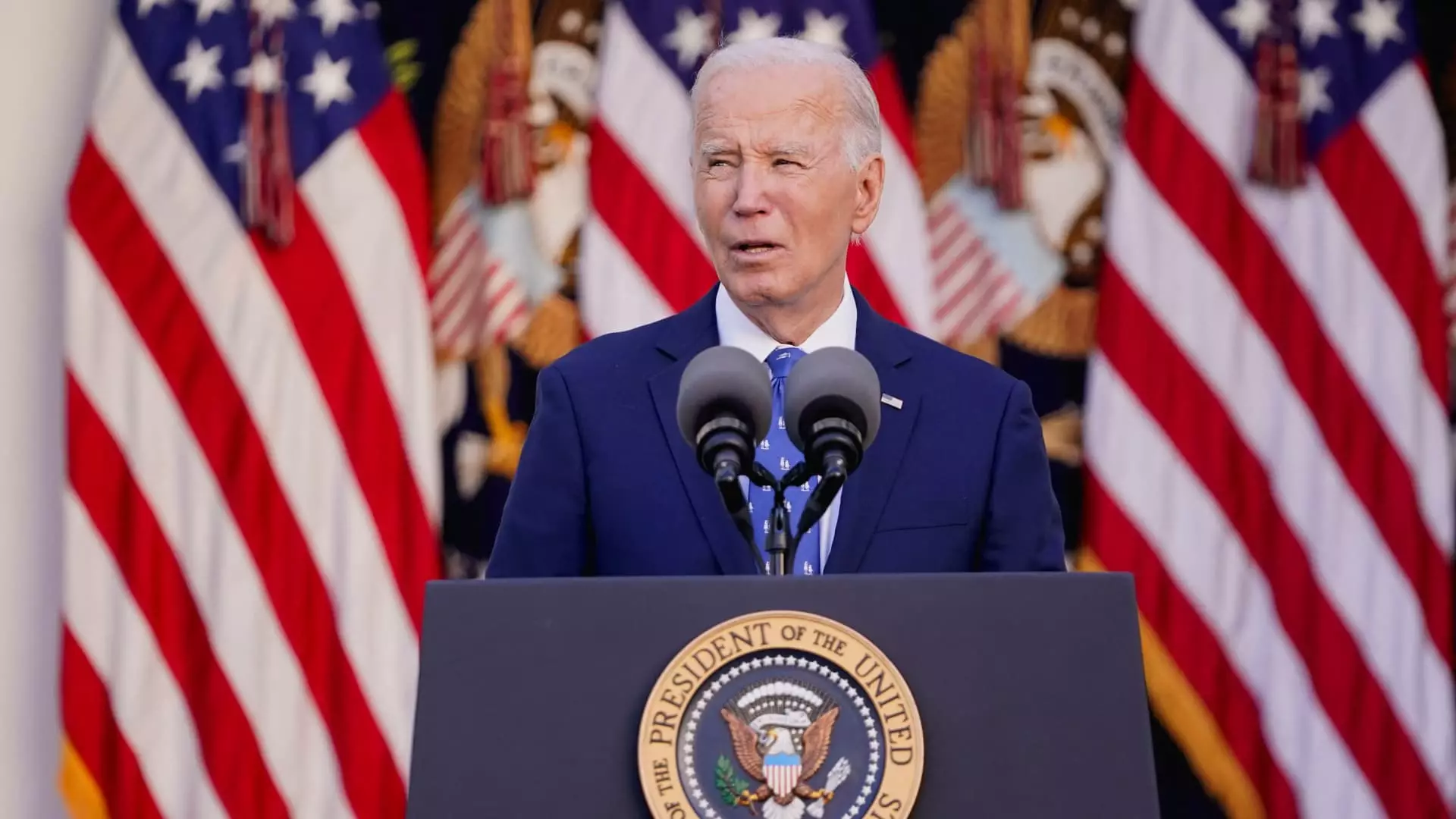The political landscape in Syria is undergoing a significant transformation as President Joe Biden expressed optimism and caution regarding the recent upheaval of the Assad regime. The fall of Bashar al-Assad’s dictatorship brings both hope and trepidation for the Syrian populace, who have endured years of conflict and suffering. As Biden pointedly articulated, this moment serves as both an opportunity for renewal and a potential source of instability.
In his remarks from the Roosevelt Room at the White House, Biden highlighted the profound desire for democracy and peace among the Syrian people. The fall of a repressive regime can indeed ignite the flames of reform, presenting an opportunity for citizens to forge a national identity free from tyranny. With decades of hardship behind them, many Syrians are undoubtedly dreaming of a brighter future – one that promises autonomy and dignity. However, the circumstances surrounding this transition are far from clear-cut, and the journey towards lasting stability may be fraught with challenges and setbacks.
Biden was quick to assert the United States’ readiness to engage with regional partners, including Jordan, Iraq, Lebanon, and Israel, during this pivotal time. The U.S. aims to provide not only political allies but also economic and humanitarian aid, crucial for rebuilding a war-torn nation. The focus on collaboration underscores an understanding that the political evolution of Syria cannot occur in isolation. However, this undertaking does entail a careful balancing act. Partnering with countries in a volatile region poses risks that threaten to undermine the progress achieved thus far.
Moreover, Biden emphasized the commitment to continuing operations against ISIS, which continues to pose a significant threat in the region. The presence of ISIS exemplifies the tumultuous climate that follows regime change, where terror networks often aim to exploit power vacuums. By conducting targeted air strikes and securing detention facilities, the U.S. aims to counteract any resurgence that ISIS might attempt amidst the chaos.
Vigilance Towards Emerging Threats
As the narrative in Syria shifts, it is not just ISIS that the U.S. government must monitor closely. Biden raised pertinent concerns regarding newly empowered rebel factions, hinting that their intentions may not be as noble as they purport. Historically, some groups that once fought against Assad have had questionable records of human rights abuses themselves. Such complexities underscore the need for vigilance and verification—a call for the U.S. to assess these groups not merely through the lens of rhetoric but based on substantive actions moving forward.
Amidst the political turbulence, humanitarian initiatives must remain at the forefront of U.S. foreign policy in Syria. Biden’s acknowledgment of the urgent need for humanitarian assistance comes at a crucial juncture, given that the Syrian civil war has resulted in immense human suffering and displacement. As the nation begins to rebuild, international support will be vital in addressing the humanitarian crises that have exploded over more than a decade of conflict.
Furthermore, the plight of American journalist Austin Tice—who was abducted in Damascus in 2012—was highlighted in Biden’s address. The president’s commitment to securing Tice’s release spotlights the broader human rights situation in Syria, where countless individuals have gone missing or faced detention under the regime. These issues must not be overshadowed by political maneuvering.
While the fall of Assad signifies a new chapter for Syria, the road to a consolidated governance framework is fraught with uncertainty. The potential for both triumph and turmoil exists all at once. Biden’s remarks serve as a reminder of the dual nature of such transitions, urging all stakeholders to approach this pivotal moment with both hope and caution as they work toward a more stable, equitable, and free Syria. The international community must unite in this endeavor, committed to fostering democracy while ensuring that the sacrifices made by the Syrian people are honored and that their voices are amplified in the new political order.



Leave a Reply